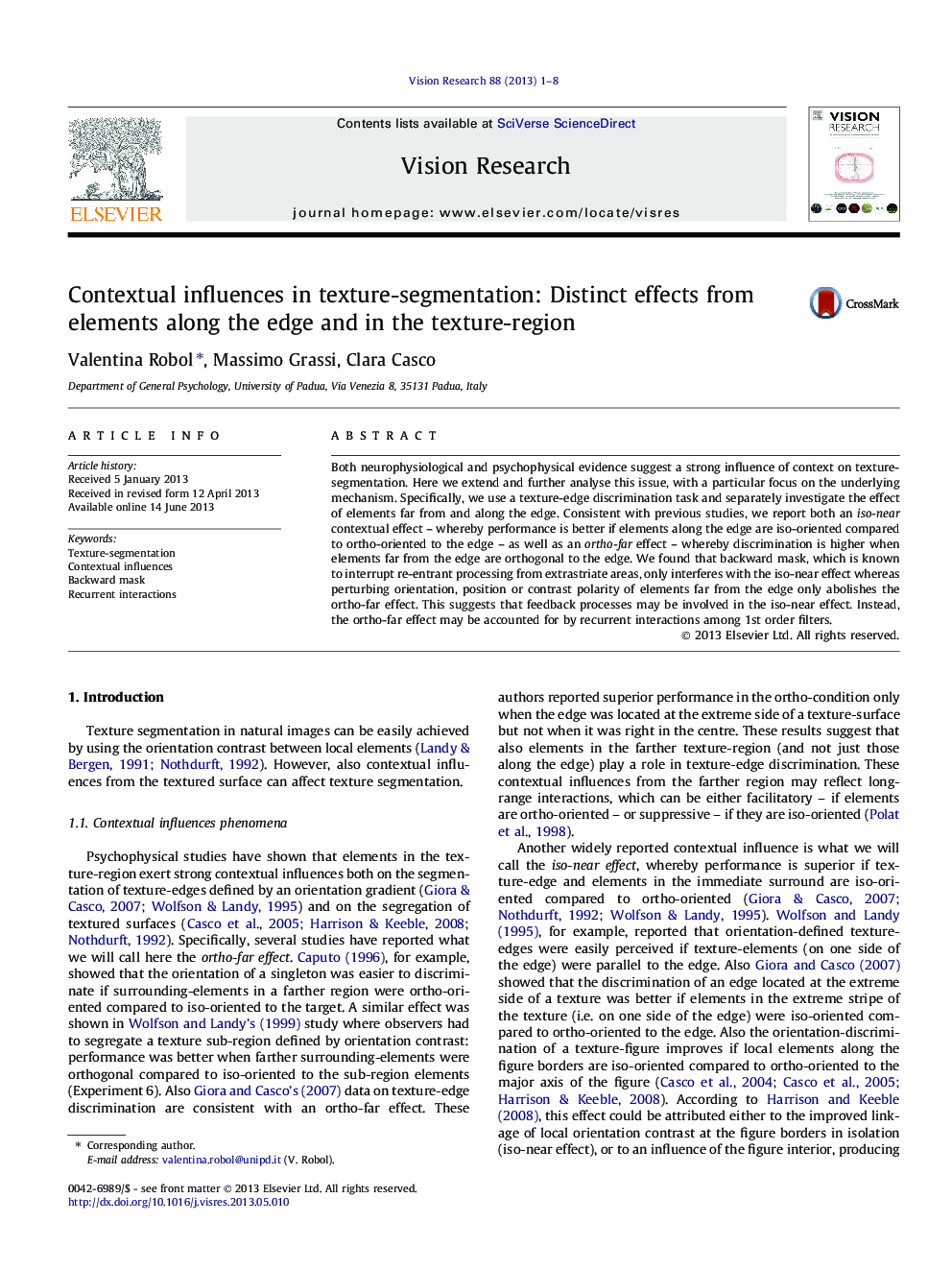| کد مقاله | کد نشریه | سال انتشار | مقاله انگلیسی | نسخه تمام متن |
|---|---|---|---|---|
| 4033774 | 1603206 | 2013 | 8 صفحه PDF | دانلود رایگان |

• We investigated contextual influences on texture-edge discrimination.
• Both iso-near and ortho-far contextual effects are reported.
• The iso-near effect relies on 2nd order filters enhancement and feedback processes.
• Recurrent interactions among 1st order filters explain the ortho-far effect.
Both neurophysiological and psychophysical evidence suggest a strong influence of context on texture-segmentation. Here we extend and further analyse this issue, with a particular focus on the underlying mechanism. Specifically, we use a texture-edge discrimination task and separately investigate the effect of elements far from and along the edge. Consistent with previous studies, we report both an iso-near contextual effect – whereby performance is better if elements along the edge are iso-oriented compared to ortho-oriented to the edge – as well as an ortho-far effect – whereby discrimination is higher when elements far from the edge are orthogonal to the edge. We found that backward mask, which is known to interrupt re-entrant processing from extrastriate areas, only interferes with the iso-near effect whereas perturbing orientation, position or contrast polarity of elements far from the edge only abolishes the ortho-far effect. This suggests that feedback processes may be involved in the iso-near effect. Instead, the ortho-far effect may be accounted for by recurrent interactions among 1st order filters.
Journal: Vision Research - Volume 88, 9 August 2013, Pages 1–8